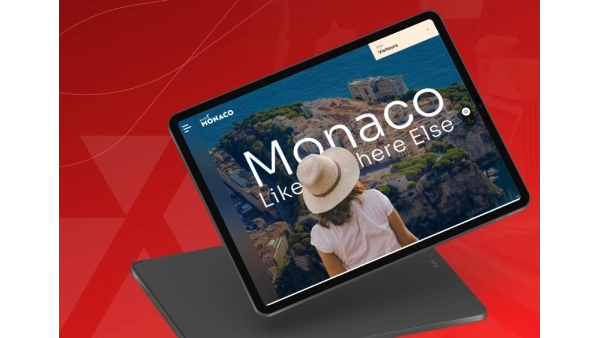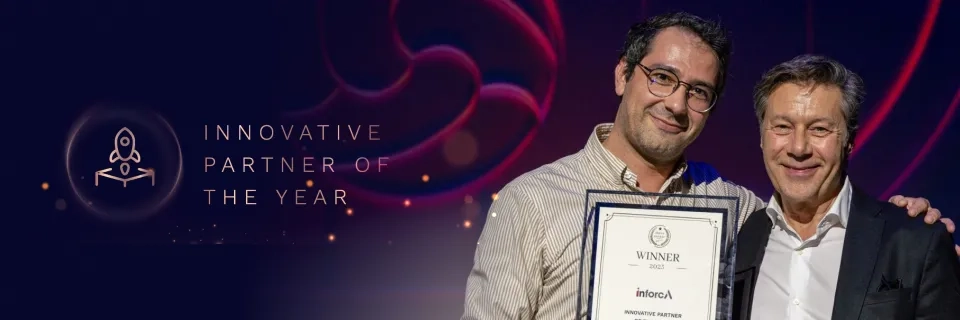


Companies that do not have the benefit of modern tools to manage the different languages of their sites rely on processes that are often manual and inefficient:
The coverage/completion rate of translations is limited due to these business constraints.
High constraints = limited translations
InLexIA is a translation module designed specifically for Ibexa DXP. Developed by our teams, it is natively integrated into the Ibexa administration interface. Contributors retain their working habits while benefiting from automatic translation options accessible from the content publication screens.
The InLexIA solution works with API connectors to recognised AI translation engines, such as DeepL, which is natively integrated into the module. We created InLexIA with an agnostic and open architecture, which means we can also envisage adding other translation engines in the future, depending on the languages available, different use cases or even the customer's specific suppliers.
With Ibexa DXP, it is possible to manage several multilingual sites from a single interface. This is a major advantage for multi-site organisations, such as institutions, international groups or large-scale content publishers. With InLexIA, you can automate the updating of your sites in the different target languages.
InLexIA has been designed to meet the needs of both business and technical teams, without compromising between ease of use and functional complexity.
For editors
There's no need for a separate interface: translation options can be accessed directly from the content management screens on the home page of each site.
Publishers can :
Thanks to its ease of use, no technical skills are required to trigger a translation.
From an editor's point of view, InLexIA is an AI agent editor that is automatically triggered and generates the translations required in the content in the administration site.
Developers
Technical teams have access to a configuration file for :
InLexIA complies with the best development practices recommended by Ibexa. To facilitate its deployment, adaptation and evolution, our teams have carefully documented the module.
One of InLexIA's great strengths is its ability to manage all types of content available on a site developed using Ibexa DXP. The module covers all the editorial components of a site, including those created dynamically.
Content supported includes
Depending on the configuration, InLexIA automatically identifies the fields to be translated according to the type of content. This granularity of parameterisation optimises the solution's performance and reduces translation costs, by processing only what is really useful.
Thanks to its structural analysis logic, the module is able to preserve the block hierarchy and RichText content formatting. In this way, translated content remains perfectly consistent with the source version, both in terms of content and form.
Request a quote now for installing the InLexIA translation module on your site.


Corporate
Three sites, three audiences, one destination. The redesign of VisitMonaco has created a modern, immersive portal designed to meet the needs of travellers, tourism professionals and journalists.
InLexIA has been developed as a bundle designed to integrate with the Ibexa ecosystem. The module is installed via Composer, and the dependency is added in the classic way:
composer require inforca/auto-translation-bundle
No external gateway or manual synchronisation is required: everything is executed and stored in the existing Ibexa architecture, making deployment easy.
Please note: a specific configuration in your project with an access token linked to your licence is required for installation.
InLexIA supports the use of customised glossaries to ensure terminological consistency in translations. This feature involves importing an .xlsx file into the Ibexa back office.
Here's how it works:
The system is compatible with suppliers that support this function, such as DeepL, provided that the correct language codes are used in accordance with the API documentation.
This configuration enables companies to impose specific translations for certain words or expressions, thus avoiding frequent errors or inconsistencies in brand names or sensitive formulations.
By default, InLexIA uses DeepL as its translation engine. This choice is based on the recognised quality of the translations provided by DeepL in European languages.
The module has been designed to allow the administrator to choose the translation provider via the configuration.
Today, DeepL is the API that Inforca recommends: it is economical, capable (more than 70 target languages), intelligent (adapts to the context) and has numerous customisation options (tone, translation quality).
We have also prepared other translation engines:
It is possible to define the translation engine in the configuration file that your project teams create for you.
auto_translate.default.config: default_api: 'deepl' # ou 'openai'
This flexibility allows each organisation to adapt the solution to its preferences or budgetary constraints, and to switch easily from one engine to another.
InLexIA has one objective: to simplify the multilingual management of websites while optimising resources.
By automating translations via APIs, editorial teams save time publishing content in several languages. No more manual copy-pasting and laborious duplication. The translated version is generated automatically within seconds of the content being published.
This also significantly reduces costs. By limiting the use of professional translators for current or recurring content, InLexIA reduces budgets without sacrificing consistency, thanks to the use of a customised glossary and the integration of advanced translation engines such as DeepL.
Finally, InLexIA facilitates access to new language markets. Thanks to mass translation and coverage of multiple languages via the available connectors, companies can rapidly expand their international presence, without making major changes to their internal organisation or complicating their content production chain.

The development of InLexIA is continuing apace, with a number of changes planned to enhance the accuracy and intelligence of the module over the coming months.
With DeepL and OpenAI already integrated into InLexIA, the module will soon be able to use other providers such as ModernMT and Systran. This openness will enable you to choose the engine that best suits your content, languages and business requirements.
It will soon be possible to define a different configuration for each target language:
The module will take into account regional language variants such as Mexican or Ecuadorian Spanish, so that the register and vocabulary can be adjusted to suit the target audience.
The addition of a formality level parameter (standard, professional, colloquial) will enable the tone of translations to be adjusted according to the publication context, where the translation engine supports this.
After setting up validation workflows for webmasters to check translations, we asked ourselves: How can we help companies check the quality of translations without costing them more time?
The solution? Create AI agents to do the job:
These enhancements, which are currently under development, are designed to make InLexIA an increasingly intelligent, accurate and customisable solution, tailored to the translation requirements of companies of all sizes.
InLexIA will be distributed as an AddOn to Ibexa DXP under a commercial licence.


